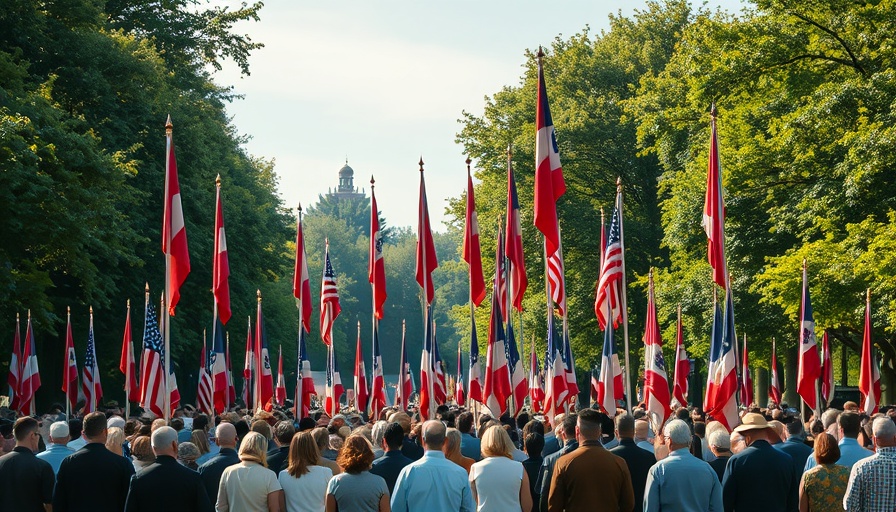
A Memorial's Silent Message on Safety
The recent unveiling of a memorial dedicated to workplace safety is a poignant reminder of the lives tragically lost due to preventable incidents. For business owners, property developers, and facility managers, this memorial serves not only as a tribute but as a call to action to rejuvenate safety protocols within their operations.
Why This Memorial Matters to Businesses
This memorial stands as a stark notification of the real-world consequences that negligence can create. As businesses navigate their responsibilities, the intersection between safety culture and operational success becomes crucial. By emphasizing safety and preventive measures, businesses not only protect their workforce but also enhance their reputation and operational efficiency.
Cultural Connections: Bridging the Past and Future
Repurposing such memorials as learning tools can change how future generations view workplace safety. Instead of being mere sights for remembrance, they can be discussion points for best practices. This fosters a culture of transparency and continuous education, vital for moving towards a safer tomorrow.
Counterarguments: The Other Side of Memorial Discussions
Not everyone may see value in the construction of such memorials. Some critics argue these tributes could detract from practical safety training. However, when integrated effectively into a safety-first culture, memorials can underline the importance of ongoing education and vigilance in the workplace.
Actionable Insights: Embracing Safety as a Core Value
Businesses are encouraged to engage their teams in discussions regarding safety protocols, thus ensuring that the dangers memorialized are addressed and learned from. Workshops, safety drills, and continuous training programs can actively involve employees, creating a workplace that honors past losses by prioritizing safety every single day.
Next Steps: Creating a Lasting Impact
For business leaders, adopting a holistic approach towards workplace safety is essential. Memorials like the one unveiled inspire a societal shift towards a collective responsibility. Reflecting on the past while fostering a proactive safety culture can significantly reduce future incidents.
Embrace the lessons that come from such memorials by integrating them into your business's ethos. Safety is not merely an obligation; it should be a cornerstone value that guides every aspect of operations. By prioritizing safety, we honor those who have suffered and protect those who carry forward.
 Add Row
Add Row  Add
Add 




 Add Row
Add Row  Add
Add 

Write A Comment